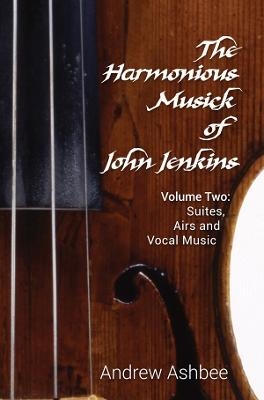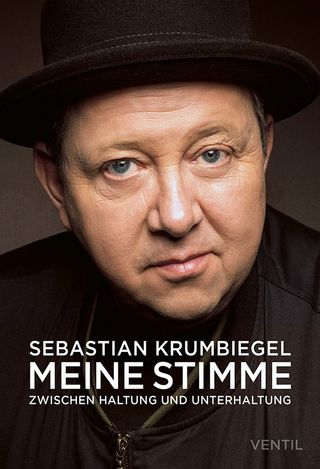
The Harmonious Musick of John Jenkins II
Volume Two: The Fantasia-Suites
Seiten
2020
Toccata Press (Verlag)
978-0-907689-47-8 (ISBN)
Toccata Press (Verlag)
978-0-907689-47-8 (ISBN)
The long-awaited sequel to Andrew Ashbee's pioneering study of the life and music of John Jenkins (1592-1678). The primary focus of this second volume is Jenkins' huge output of fantasia-suites, but his vocal music also comes under examination, and a complete source-list of Jenkins' music is provided.
John Jenkins (1592-1678) was both the most prolific and the most esteemed of English composers in the fifty years or so between the death of William Byrd and the rise of Henry Purcell. After his apprenticeship Jenkins became renowned as a skilled performer on lute and viol, once playing to Charles I 'as one that performed somewhat extraordinary'. Throughout his long life he was employed as a resident musician in East Anglia in households of the nobility, where, as well as playing, teaching and directing the music-making, his duties would include the composing and copying of music. At the restoration of Charles II Jenkins became a court musician, although, in view of his advanced age, he spent little time there. He died on 27 October 1678 at Kimberley, Norfolk, where he is buried.
As a composer, Jenkins' preferred medium was instrumental music, and he wrote little else. He came to maturity in the 1620s,when the consort fantasia for viols was in its prime. In later years he turned to the newer music then in vogue, such as the fantasia-suite and suites of dances, contributing significantly to their development.
This book is the second in a two-volume study of Jenkins and his music. Volume I contains a full biographical introduction before concerning itself exclusively with the superb consorts for viols which dominate the early part of the composer's career. This second volume surveys the rest of his output, setting each group of pieces in context, beginning with his innovative series of fantasia-suites. Although often unpretentious and geared to amateur performance, his 'horsloads' of airs maintain a lively and varied character. More than fifty works for bass viol(s) are among the best of their kind, as are the pieces featuring the lyra viol in both solo and consort works. The book ends by examining Jenkins' vocal music. Whatever medium he chose, Jenkins was able to add important pieces to the repertory. An growing list of recordings endorses Christopher Simpson's view that he was 'the ever Famous and most Excellent Composer,in all sorts of Modern Musick'.
John Jenkins (1592-1678) was both the most prolific and the most esteemed of English composers in the fifty years or so between the death of William Byrd and the rise of Henry Purcell. After his apprenticeship Jenkins became renowned as a skilled performer on lute and viol, once playing to Charles I 'as one that performed somewhat extraordinary'. Throughout his long life he was employed as a resident musician in East Anglia in households of the nobility, where, as well as playing, teaching and directing the music-making, his duties would include the composing and copying of music. At the restoration of Charles II Jenkins became a court musician, although, in view of his advanced age, he spent little time there. He died on 27 October 1678 at Kimberley, Norfolk, where he is buried.
As a composer, Jenkins' preferred medium was instrumental music, and he wrote little else. He came to maturity in the 1620s,when the consort fantasia for viols was in its prime. In later years he turned to the newer music then in vogue, such as the fantasia-suite and suites of dances, contributing significantly to their development.
This book is the second in a two-volume study of Jenkins and his music. Volume I contains a full biographical introduction before concerning itself exclusively with the superb consorts for viols which dominate the early part of the composer's career. This second volume surveys the rest of his output, setting each group of pieces in context, beginning with his innovative series of fantasia-suites. Although often unpretentious and geared to amateur performance, his 'horsloads' of airs maintain a lively and varied character. More than fifty works for bass viol(s) are among the best of their kind, as are the pieces featuring the lyra viol in both solo and consort works. The book ends by examining Jenkins' vocal music. Whatever medium he chose, Jenkins was able to add important pieces to the repertory. An growing list of recordings endorses Christopher Simpson's view that he was 'the ever Famous and most Excellent Composer,in all sorts of Modern Musick'.
Andrew Ashbee is internationally known as an expert on seventeenth-century English instrumental music, particularly that of John Jenkins. He is the author of numerous articles and reviewsin leading music journals, and he has broadcast and lectured in England, America and Holland.
| Erscheinungsdatum | 16.01.2020 |
|---|---|
| Zusatzinfo | 8 b/w, 82 line illus. |
| Verlagsort | London |
| Sprache | englisch |
| Maße | 140 x 220 mm |
| Gewicht | 620 g |
| Themenwelt | Kunst / Musik / Theater ► Musik ► Musikgeschichte |
| ISBN-10 | 0-907689-47-7 / 0907689477 |
| ISBN-13 | 978-0-907689-47-8 / 9780907689478 |
| Zustand | Neuware |
| Haben Sie eine Frage zum Produkt? |
Mehr entdecken
aus dem Bereich
aus dem Bereich
das Gesamtkunstwerk Kraftwerk
Buch | Softcover (2024)
C.W. Leske Verlag
24,00 €
Buch | Softcover (2022)
Edition Olms (Verlag)
29,95 €


